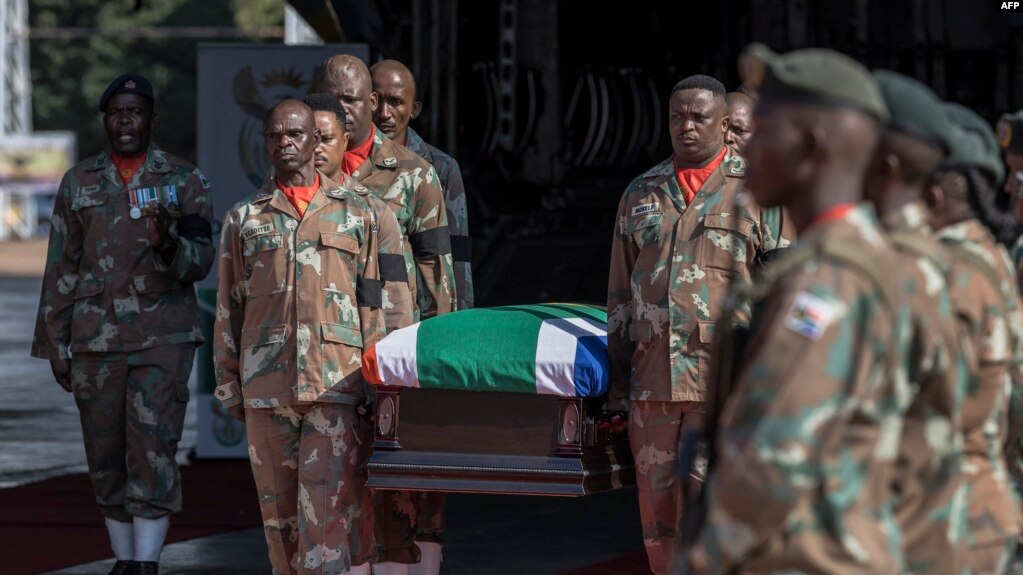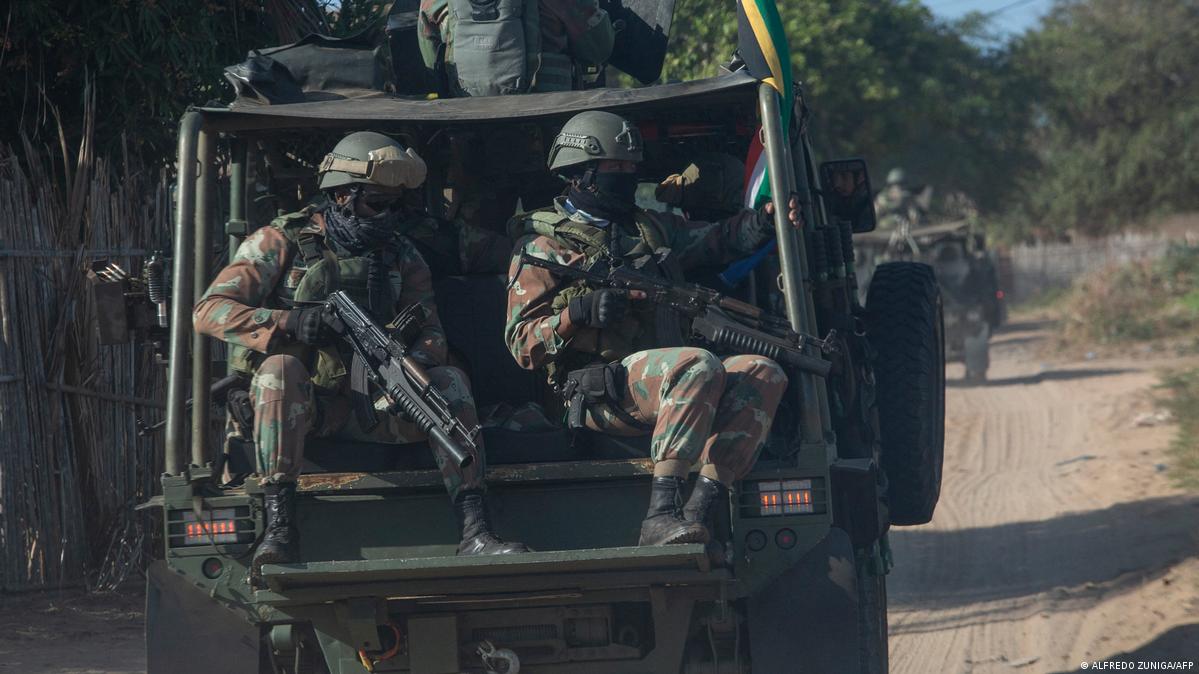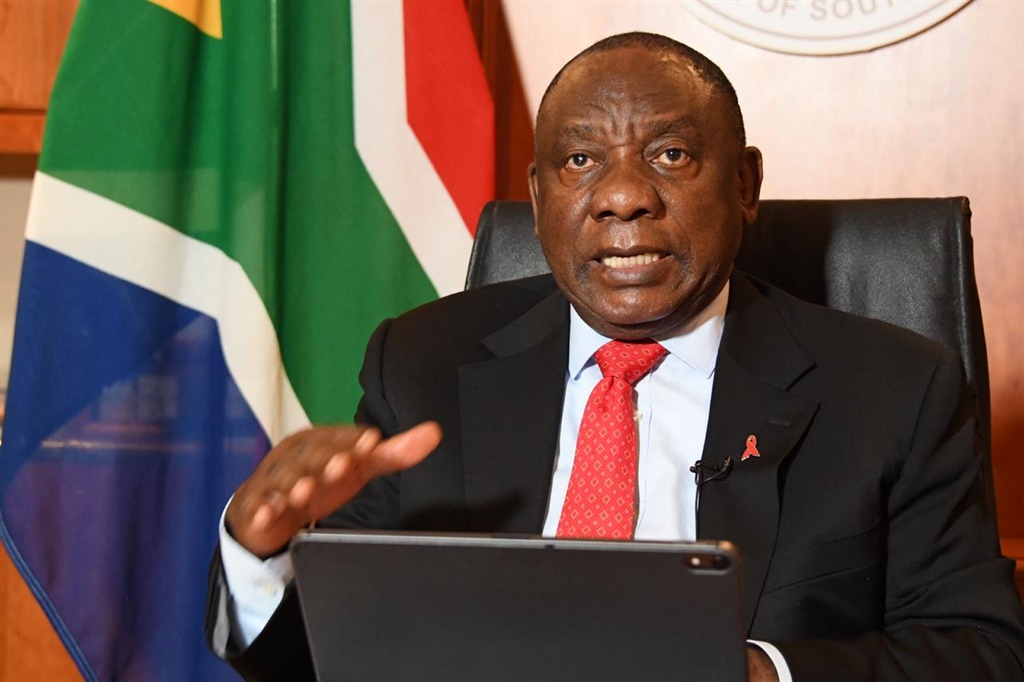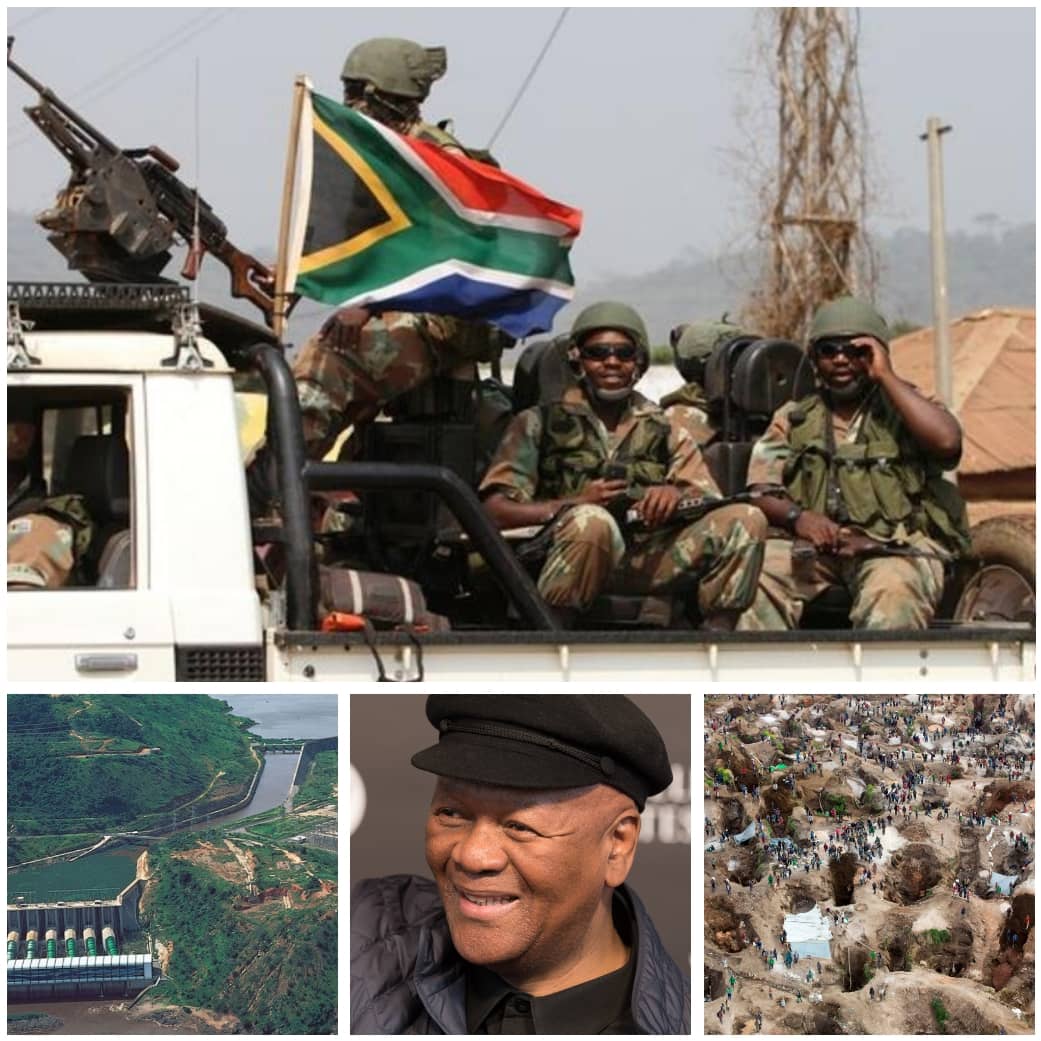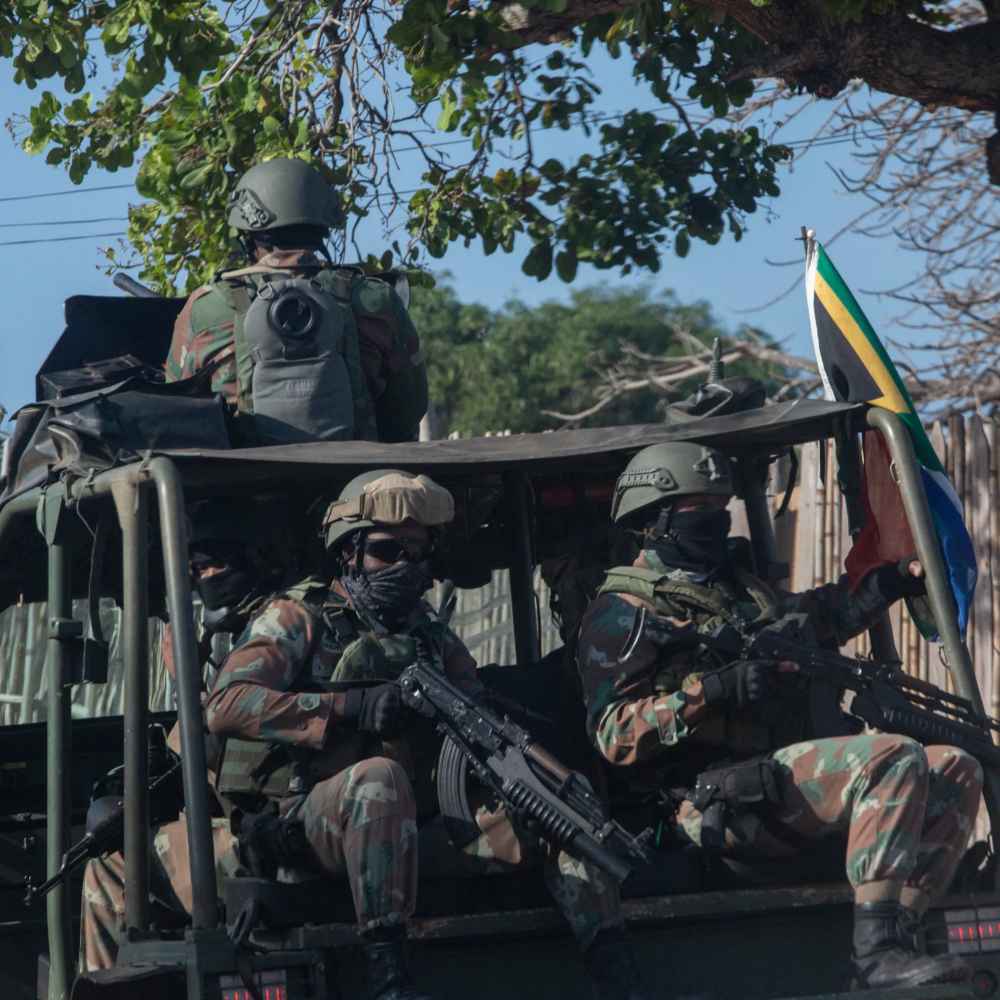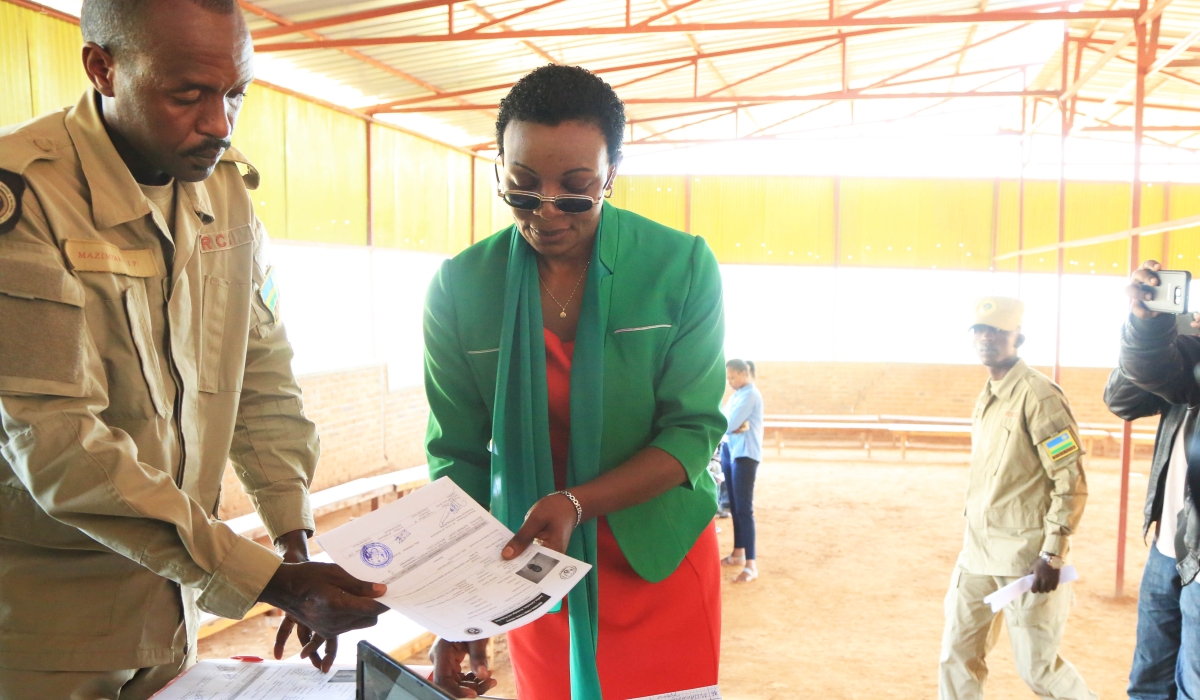International
South African troops in DRC causing internal wrangles in coalition government
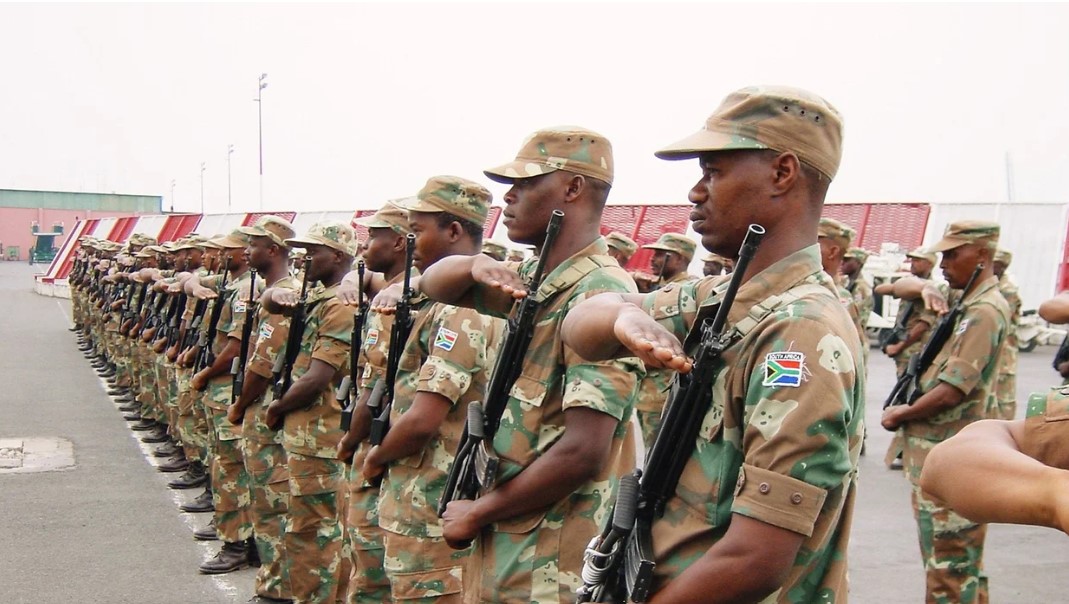
South African soldiers.
Internal wrangles have upped in South Africa’s new coalition government over the controversial deployment of the country’s army in the east of the Democratic Republic of Congo (DRC), where they joined a Congolese army coalition in fighting M23 rebels.
The
Democratic Alliance (DA), one of parties that accepted the offer from ANC to
join it to have a majority in Parliament and form a new coalition government
for which Cyril Ramaphosa presides, has called for a new defense review, and
for the withdrawal of South African soldiers from the DRC.
The
South African National Defence Force (SANDF) faces heavy underfunding issues,
resulting in shortage of equipment and capabilities.
During
the defense budget vote debate in Parliament on July15, DA representative for
Defence and Military Veterans Chris Hattingh, noted that the defense budget has
once again decreased, from R52.5 billion (around $137 million) to R51.8 billion
($98.5 million), continuing a downward trend that has seen a 1.3 per cent year
on year decrease, or 5.69 per cent decrease in real terms considering
inflation.
In
July 2023, the Department of Defense informed the National Treasury that there
is insufficient funding for the compensation of employees, that critical posts
are being left vacant, and that the Department of Defense is unable to execute
its core mandate amidst increasing operational requirements.
There
is also limited funding for the Strategic Capital Acquisition Master Plan
(SCAMP), that the deterioration of SANDF facilities, infrastructure and
capabilities continues, that the Department of Defense is unable to modernize
and secure legacy defense ICT systems, and is unable to maintain critical stock
levels – including fuel, ammunition, medical supplies as well as
pharmaceuticals.
The
National Treasury reported in June that the Department of Defense was
responsible for 78 per cent, of all government departments’ late payments of
suppliers over 30 days, amounting to R1.407 billion (over USD 77 million).
“These
late payments have severe consequences for suppliers, some struggling to
survive, and others having their credit ratings downgraded,” Hattingh stated.
He warned that lack of adequate funding resulted in a lack of proper maintenance and regular upgrading and replacement of obsolete equipment, “and this has seriously impacted the SANDF’s ability to fulfil its mandate.”
The
first contingent of South African troops arrived in eastern DRC, in late
December 2023, as part of the deployment of military forces by the Southern
African Development Community (SADC) to fight M23 rebels.
Sources
said that SANDF’s deployment was Ramaphosa’s plan to please his Congolese
counterpart Felix Tshisekedi, so that the former’s family gains full access to
Rubaya mines in DRC.
The
SANDF’s first mission was to remove M23 rebels from their captured territory in
Sake, some 25 kilometers north-west of Goma, and precisely attempt to take
control of Rubaya mines in Masisi, North Kivu Province.
The
Rubaya mines are a series of coltan mining sites near the town of Rubaya in
Masisi Territory where tones of the strategic mineral have been, for years,
extracted and exported.
The
SANDF’s mission in DRC was controversial, from the very start. The South
African army is protecting Ramaphosa’s interests, disregarding the plight of
the Congolese people who are suffering.
According
to a source from Pretoria, South African Mining Development Association (MIASA)
wants to have access to the mining hub, prompting the South African troops to
viciously fight M23 rebels, with the resultant civilian casualties, for the
sake of securing the mines.
Ramaphosa's
special envoy to the Great Lakes, Jeff Radebe, is married to Brigitte Motsepe,
the President of MIASA, and the sister of the South African first lady.
Radebe's brother-in-law Patrice Motsepe, the Confederation of African Football
(CAF) president, is one of Africa's mining billionaires.
As
such, SANDF’s deployment in DRC is not aimed at restoring peace for Congolese
people as SADC declared. The mission serves the "selfish" economic
interests of Ramaphosa and his family, a source said.
Hattingh
noted that the Department of Defense was mandated to deploy 2,900 soldiers
under the SADC mission in DRC (SAMIDRC) at a cost of R2.4 billion (USD 131.4
million), while the SADC mission in Mozambique is cost R850 million (USD 46.5
million) this financial year. Only R2.6 billion (USD 142.3 million) has been
allocated over the three-year Medium Term Expenditure Framework period for
peace support operations.
In
early July, Treasury allocated of R2.1 billion (USD 115 million) for SANDF
operations in DRC, and R750 million (USD 41 million) for SANDF operations in
Mozambique to ease the financial pressure on the army.
However,
the escalation of conflict in DRC will certainly demand more funding, as
Hattingh observed.
“Now
let me address the elephant in the room. The SANDF deployment in the DRC is
certainly not an SADC peacekeeping mission. Neighbouring countries like Angola
and Zambia, part of SADC, do not participate in this SADC mission although they
share long borders with the DRC.”
Hattingh explained that the conflict between DRC and M23 rebels has escalated into an undeclared war involving the Congolese national army, Wazalendo coalition of militia groups, the FDLR genocidal militia which originated from Rwanda, the Burundian National Defence Force, trooos from South Africa, all against the M23 rebel group.



